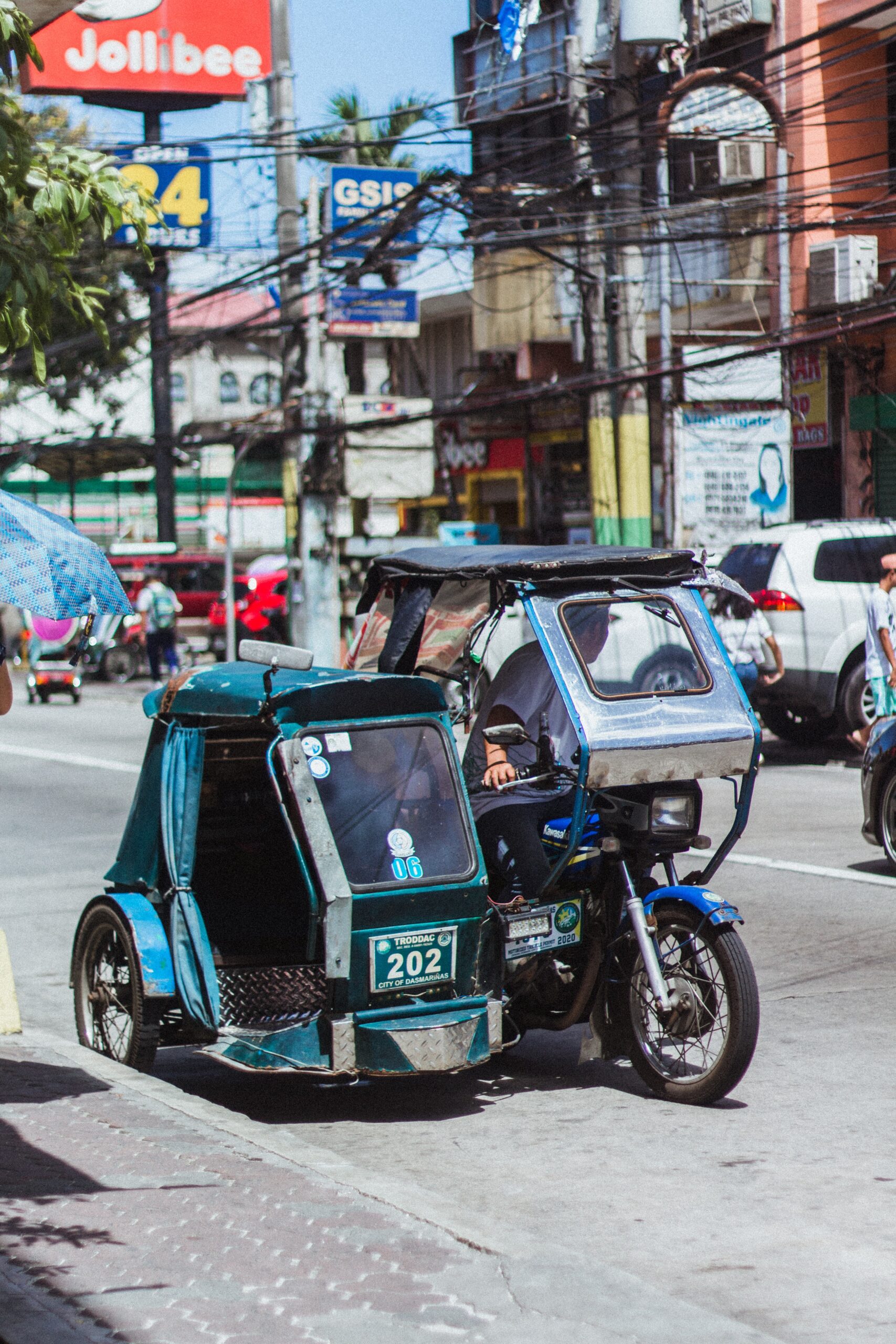Things To Know Before Moving To Germany
So you’re planning to move to Germany. There are some particular things to know before moving to Germany. I would never forget the first days when I was still new in the country. There was so much to learn to adjust to. Therefore, I thought I would share with you the new things I discovered as a newcomer in the city of Berlin.
Update: This post was written and published by the previous owner of this website. As the new owner of this site, I made some minor edits and changes to match my own writing and publishing style, in May 2023. However, I have left the information mostly in it’s original form. – Amy
Living in Germany for almost six years already, I could differentiate the life and experiences I have had which I never encountered before when I was in the Philippines. This post is not only about me and my life in Germany. It is also for you to decide if you want to visit Germany and see if Germany has more to offer than just sausages, potatoes, and beer.

Whether relocating to the country as a student or a worker, it is your obligation to find out the things you should know before going to Germany or else you will go astray – literally in the land of potatoes and sausages. This country is more than just the harsh-sounding language of the Germans and the Germany’s gloomy history. But Germany, like other countries, is unique on its own.
Things to Know Before Moving to Germany
Sundays are not for shopping
I find it contradicting that on Sundays families have more time to go shopping. But I guess not for the Germans and in other parts of Europe.
It is not only that Germans are religious and they choose to go to church on Sunday. Believe me, only 10 per cent of registered Catholics attend church.
Before you waste your time schlepping your shopping bag with the intention of grocery shopping, know that Germany has a law called Ladenschlussgesetz or store-closing law that bans German stores from opening and operating on Sundays.
If you’re new in Germany, I advise you to do your grocery errands on Saturdays if you can’t make it on weekdays or else you have to order your food online.
But if you will be in Berlin and maybe in other cities in Germany, some stores like Ulrich and gasoline stations and convenience stores (Späti) are open on Sundays.
You pack your own grocery or shopping items
I could still remember when I was in the Philippines, my friends and I could still chat while we were waiting for our turn at the counter to pay.
But in Germany, there’s barely time to chatter when you have to pay and pack the items at the same time.
It doesn’t even help that cashiers are pretty quick in scanning the items, so you have to be swift too, especially if you see a long line behind you.
So far, no one has ordered me around to hurry, but the shopping experience in Germany is way different from in my country.
Homeless Residents on the side of streets, train stations and on trains
This one might be a little disappointing – you will find homeless people in the trains and train stations. They usually carry with them a cup for alms and a couple of newspapers to sell to passengers. Some ask for money with nothing in return, begging for money to survive the day.
You might think that Germany does nothing to hinder homelessness.
I have watched German documentaries and found out that some people lost their homes because they failed to pay their monthly rent because of joblessness, addiction, and bankruptcy.
There was even one homeless man who was supposedly a millionaire but now living on the streets because his Betreuer betrayed him and embezzled his assets.
I can’t gauge if the man is telling the truth or living in a delusion of grandeur. In Germany, you will come across Betreuer, somebody who takes care of paper work and finances if the person can’t handle them all by himself.
What you can do: Either you give a couple of euro cents or you ignore them by simply saying nothing or nodding your head. If you dare – you can strike up a couple of German words to say you don’t have a Kleingeld.
Learn German – at least a few words
Going to Germany with no German knowledge is very possible.
People who don’t need to learn the native language enter the country as tourists or professionals working for international companies.
Finding a job as a non-German speaker may not be that difficult. But I am none the wiser since I don’t have firsthand experience in applying for English-speaking jobs. Landing a job may not be a problem for everyone, but doing paperwork makes living in Germany challenging for non-German speakers.
In those cases, find somebody who is willing to accompany you to go to offices as an interpreter and translator.
If you go alone with no interpreter in tow – then I advise you to cross your fingers. I am not telling you this to frighten you. But handling official and legal matters is quite a venture, especially if you can’t speak their language.
Okay, German offices are not dungeons – that one is a relief at least, huh. But don’t expect the staff to accommodate you with patience, especially if you don’t speak the language. Don’t fret! According to reports, 56% of the population in Germany speaks English. Some may not be as fluent as you expect, but Germans can speak English too.
However, you’re in Deutschland, the land of the Deutsche, and it will be good if you can utter a few German words too.
Learn at least how to say Danke, Guten Tag and other basic German words.
Return your bottle and get your money back
When you buy bottled drinks in Germany you also pay for the Pfand that enables you to get the money back when you return the bottle. Water bottles cost usually 25 cents and beer bottles amount to 0.08 cents. Not that much, but if you collected a couple of bottles, you might get 3-5 euros worth of Pfand.
I’m not sure if we have this in my country, but I love that Germany has this kind of recycle system which is really superb; you save the environment and you save your money.
You can only return bottles with that sign (marked above) in your local grocery store. But if you have collected a lot of bottles, it is better to bring the bottles to a huge Edeka grocery store so you can return all your bottles.
Water that looks like Sprite but doesn’t taste like Sprite
It was my second day in Germany when I first tasted it – the lovely German water. Thankfully, I didn’t spit it in front of my employer.
It was the day when I signed my working contract and talked with my employer about my job. I was offered water, but little did I know that there was a thrill in the water. I didn’t show my surprise and my utter disgust while thoughts were running inside my jet lagged brain. It was new to me since I haven’t drunk sparkling water back at home.
But later on, I learned to get used to it and sometimes prefer drinking it to the normal mineral water.
If you are planning to move to Germany from USA, prepare yourself!
Transportation is great
This is one of the awesome things about Germany! Traveling and going to work is easier with the country’s different means of transportation.
You can travel via bus, U-Bahn (underground subway), S-Bahn (urban train), and tram. Plus, with a monthly ticket which is worth €86, at least in Berlin, you can use that for certain zones using any means of transportation.
If you don’t like traveling by public transportations, then you should have your own car but see to it that you have a license or you’ll get fines for driving without a license. Of course, this is not only a law in Germany, but in other parts of the world too.
Speaking of getting your own car and license, if you’re thinking of doing that in Germany, attending a driving school may cost more than a second-hand car.

How to handle German appointments and paperwork are definite things to know before moving to Germany
I should have seen it coming from the moment I applied for a job while I was in the Philippines. Well, I thought it was normal to always present your paper while you’re applying for something.
Germany and its bureaucracy can be so tedious for newcomers. Heck, even the locals and native Germans find it a little bit overdone.
Even if you have to call in sick, you have to show or send an official certificate of a sick note from a doctor to your work or employer.
So if you’re sick and weak and really just probably need to sleep it off and rest, you have the obligation to call and get an appointment with a doctor. In my country, I didn’t experience that, maybe because I wasn’t a frequent visitor to clinics and hospitals. If you can’t make it to your work, a call to your boss would suffice in my country. But in Germany, you can’t simply call your workplace and say you are too sick to go to work. The sick leave in Germany doesn’t work that way.
Oh, if you don’t show up at your doctor’s appointment or didn’t call a day before to notify that you were canceling the appointment, the doctor will charge you a fee for it.
Before relocating to Germany, you must show the following paper work to the German office you are dealing with.
- Visa
- Passport
- Residence registration
- Work permit and working contract (for working professionals)
- University admission (if you’re a student)
- Health insurance card or certificate
- Bank card
Are you planning to move to Germany? Perhaps you’re already living in Germany, and you have a story to tell too. Let us know in the comments down below. I would love to know about your experiences too while living abroad in Germany or what are your preparations before moving to Germany. Did I leave off any important things to know before moving to Germany?
If You Enjoyed Our Things to Know Before Moving to Germany, Check Our Other Posts!
If you enjoyed this post on things to know before moving to Germany, you will want to check out our other Germany posts!
How I Studied German in 7 Months
When I Decided to Learn German






